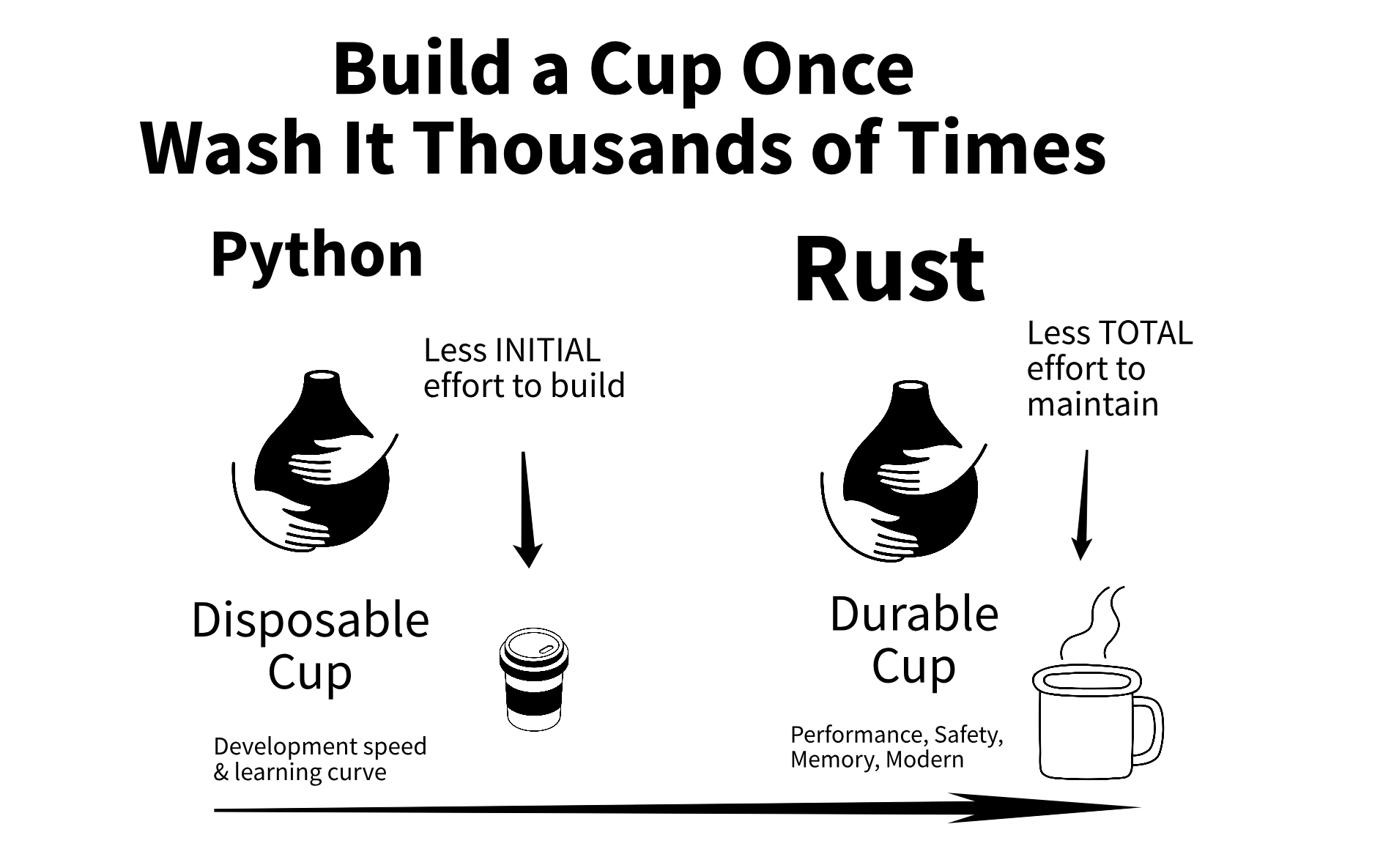Recently I became a voracious reader of David Graeber, and in a talk about BS jobs, he gave a great analogy, “you make a cup once, you wash it a thousand times”.

This is the essence of the problem with Rust vs Python in 2025 and beyond. Rust is a sturdy cup that is easy to wash. Python is an easy cup to build, but very difficult to wash.
Building vs. Washing a Cup: Rust vs. Scripting Languages
Key Points:
- Analogy: Building a cup (initial development) vs. washing a cup (maintenance)
- Rust represents a well-crafted cup, while Python represents a quickly made, crude cup
Advantages of Rust:
- Optimized for long-term maintenance
- Compiler catches bugs early:
- Type errors
- Syntax errors
- Concurrency issues
- Better packaging and deployment
- Improved energy efficiency
- Smaller carbon footprint
Disadvantages of Scripting Languages (e.g., Python):
- Easier initial development, but potential long-term issues
- Packaging often an afterthought
- Slower package performance
- No compiler to catch certain types of bugs
Considerations for Choosing a Language:
- Long-term maintenance costs
- Energy efficiency
- Carbon footprint
- Deployment process
- Overall cost (human labor and cloud resources)
Takeaway:
When selecting a programming language, consider factors beyond initial ease of use. Languages like Rust may require more upfront effort but can provide significant long-term benefits in terms of maintenance, performance, and reliability.